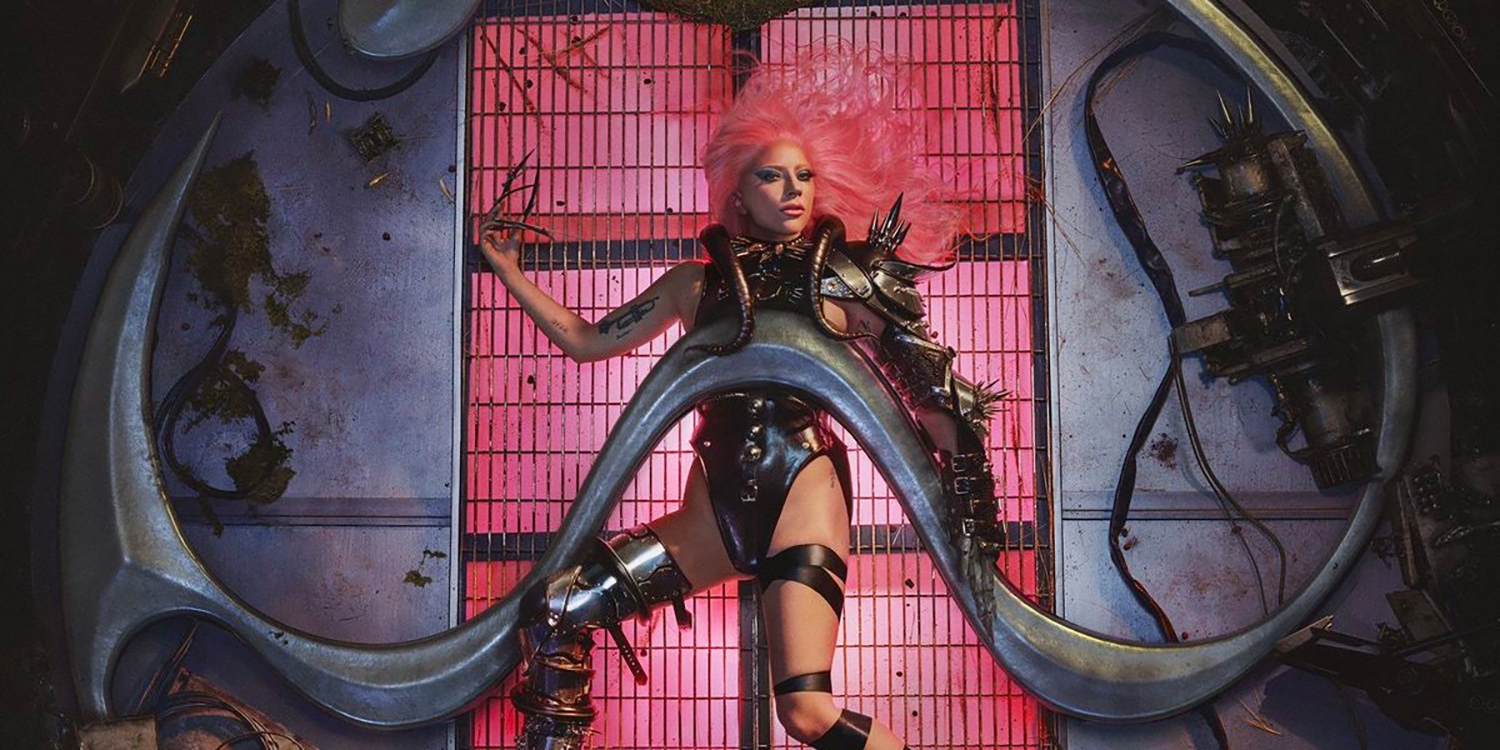
Musicians have always obsessed with fame, both as an abstract concept and as an aspirational state. The allure is obvious: Being famous has its perils, but the potential upsides outweigh the negatives. No modern pop star is more self-aware about fame’s complications and contradictions than Lady Gaga.
From the very start of her career, she viewed celebrity with skepticism, even as she embraced stardom’s glittering prison. That tension has simmered beneath all of her musical identities and eras: futuristic dance-pop practitioner, artsy club kid, wild-child glam rocker, and country-disco balladeer. Much of this friction stems from the distance between Gaga’s flamboyant public persona and her true self: native New Yorker Stefani Germanotta, a talented pianist who grew up doing musical theater and later found her niche alongside Lower East Side musical misfits.
Although this background informs her work—no Gaga concert would be complete without a smoldering piano power ballad—her lyrics are another story. Despite their universal sentiments, the self-empowerment anthem “Born This Way” and torchy “Million Reasons” don’t necessarily feel tethered to her own personal experience. Even the emotionally wrenching “Shallow,” which was credited to Lady Gaga, was impossible to hear without thinking of her performance as Ally in A Star is Born. Make no mistake, her catalog is galvanizing and moving—but the over-the-top Gaga-ness of her approach, for better or for worse, often masked her sincerity and depth.
That may have shifted with the release of her sixth album. On Chromatica—a term she’s characterized as both “a frame of mind” and the actual physical place where she lives now—Gaga detonates the division between her public and private selves.
As a lyricist, she explores her relationship to life-saving antipsychotic medicine (“911”), acknowledges that it’s healthy to admit when things aren’t okay (the Ariana Grande duet “Rain On Me”), and reclaims her identity and gender after a sexual assault (“Free Woman”). In the past, Gaga might have discussed these heavy topics from ironic remove or from the stance that she’s bulletproof; but Chromatica‘s songs are refreshingly direct and don’t sugarcoat any pain. These lyrics are also honest about the fact that merging Lady Gaga and Stefani Germanotta is an imperfect process. “Fun Tonight” is positioned as a heart-to-heart conversation between these two selves, in which Gaga comes to terms with her ambivalence toward fame and tabloid attention. And her ongoing frustration as being perceived as style-over-substance culminates in “Plastic Doll,” which skewers culture’s obsession with perfection and features the inimitable line, “Who’s that girl, Malibu Gaga?”
Appropriately enough for the subject matter, Chromatica is a throwback to the relentless dance-pop of her early work, 2008’s The Fame and 2011’s Born This Way. Working again with a variety of collaborators—most notably BloodPop, who co-produced her 2016 album Joanne—Gaga envisions Chromatica as a hedonistic discotheque located on a distant planet. There’s ecstatic modern homages to vintage house music full of skyscraping soul vocals, staccato piano and taut tempos; sizzling dance anthems built around humid disco grooves; and meticulous earworms bringing back Europop’s geometric keyboards and precise beats.
Yet like Joanne—which touched on dust-kicking country-rock and electro alike—Chromatica doesn’t necessarily play by standard pop rules. Orchestral interludes arranged by Morgan Kibby, who records as White Sea and is known for her cinematic work with M83, add majestic connective tissue that leads to moments of pure joy. The grand string swells of “Chromatica II” especially are a delight, as they crescendo and swerve right into standout “911,” a stomping robo-pop anthem with bubbly four-on-the-floor beats. And Elton John is Gaga’s perfect foil on the duet “Sine From Above,” a modern house classic reveling in the healing power of music: The pair belt out the lyrics together, two iconoclasts finding solace in each other’s creative orbits.
It’s bittersweet that the album is arriving in a time of social distancing and physical isolation. In many ways, Chromatica is ideal for blasting in communal environments, perhaps at a packed club or party, as the music celebrates the power derived from making yourself vulnerable around (and to) other people. However, Gaga’s deep connection to the material, and commitment to being kind to herself even as she exposes her rawest emotions, makes for a rich listening experience no matter where it happens. Consider Chromatica the soundtrack for 2020’s most epic bedroom dance parties.
More Must-Reads from TIME
- Cybersecurity Experts Are Sounding the Alarm on DOGE
- Meet the 2025 Women of the Year
- The Harsh Truth About Disability Inclusion
- Why Do More Young Adults Have Cancer?
- Colman Domingo Leads With Radical Love
- How to Get Better at Doing Things Alone
- Michelle Zauner Stares Down the Darkness
Contact us at letters@time.com